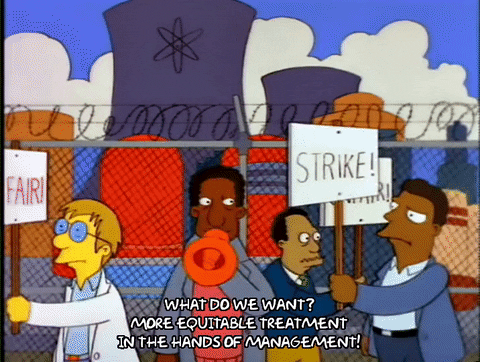Want to make more money? You could switch careers or push for that promotion—or you could try to join a labour union.
Driving the news: Canadian unions have been pacing the picket lines, fighting for higher wages as rampant inflation diminishes purchasing power—and they’ve been winning.
- In May, 35,000 Canada Revenue Agency (CRA) employees represented by the Public Service Alliance of Canada (PSAC) agreed on an 11.5% wage increase over four years and more flexibility in work hours and location.
- WestJet pilots made an 11-th hour deal ahead of one of the country’s busiest travel weekends, winning a 24% pay increase over four years and putting their salaries in line with their American counterparts.
Why it’s happening: Wages haven’t kept up with inflation, and the effects are clear as day—Canadians have the highest level of household debt of all G7 countries, food bank use is at its peak, and we’re in the midst of a housing crisis.
- Unions are approaching the bargaining table with these issues in mind, demanding companies shell out more to ensure workers earn a living wage, have safer working conditions, increased job security and access to enhanced health benefits.
Why it matters: The power of collective bargaining almost guarantees unionized workers will earn more than non-unionized employees in similar roles. Data from Statistics Canada shows that union members earn $5.00 more on average compared to their non-unionized counterparts.
- Surprisingly, the union advantage was the strongest for temporary workers, where unionized employees earned almost $9.00 more than non-unionized workers in 2022.
Yes, but: Some critics argue that unions reward seniority over performance and that collective bargaining imposes “economic losses” across the board.
Bottom line: Whatever side of the union argument you fall on, you can’t argue with data. Strikes are securing wage gains and with inflation eating up people’s paychecks, we’ll probably see a lot more of them in the near future.
